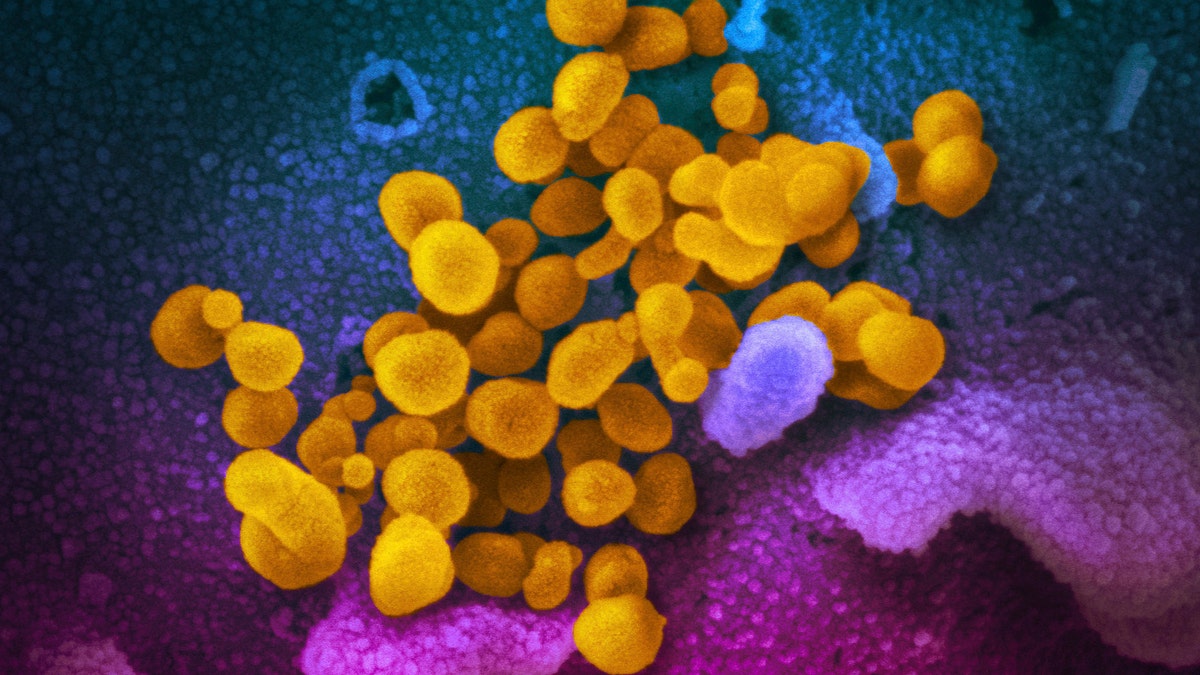Fox News Flash top headlines for May 15
Fox News Flash top headlines are here. Check out what's clicking on Foxnews.com.
Get all the latest news on coronavirus and more delivered daily to your inbox. Sign up here.
A single dose of ChAdOx1 nCoV-19, an investigational vaccine against SARS-CoV-2, has protected six rhesus macaques from pneumonia caused by the virus, according to the National Institutes of Health.
SARS-CoV-2, more commonly known as COVID-19, has infected 4,523,916 people and killed at least 306,412 worldwide as of Friday evening, per Johns Hopkins University. The researchers posted their data, which is not yet peer reviewed, to the preprint server bioRxiv.
Based on the data, a Phase 1 trial of the candidate vaccine, which was developed at the University of Oxford Jenner Institute, began on April 23 in healthy volunteers in the United Kingdom, the NIH reports.
AMAZON COULD BE THE ORIGIN OF THE NEXT GLOBAL PANDEMIC, SCIENTIST WARNS

This undated electron microscope image made available by the U.S. National Institutes of Health in February 2020 shows the Novel Coronavirus SARS-CoV-2, yellow, emerging from the surface of cells, blue/pink, cultured in the lab. (NIAID-RML via AP, File)
PLACES WITHOUT SOCIAL DISTANCING HAVE 35 TIMES MORE CORONAVIRUS SPREAD, STUDY FINDS
The vaccine uses a replication-deficient chimpanzee adenovirus to deliver a SARS-CoV-2 protein to induce a protective immune response.
Researchers conducted efficacy testing on the macaques at the National Institure of Allergy and Infectious Disease’s Rocky Mountain Laboratories in Hamilton, Montana.
Six animals that received the investigational vaccine 28 days before being infected with SARS-CoV-2 were compared with three control animals that did not receive the vaccine.
The vaccinated animals showed no signs of virus replication in the lungs, significantly lower levels of respiratory disease and no lung damage compared to control animals.
ChAdOx1 has already been utilized to create investigational vaccines against other pathogens, including a different coronavirus that causes Middle East respiratory syndrome (MERS).




















